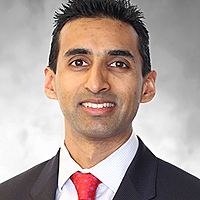The 4 reasons why central bankers are not inclined to raise rates again
Despite market expectations, both the Fed and the RBA have recently revealed a cautious approach to further rate rises. There were four key factors that influenced this decision, leading us to believe the RBA’s next move is more likely to be a rate cut than a rate hike.
In this piece, we examine these indicators and explain what it means for bond investments.
Transcript
Valtwies: Welcome to this month's trade floor update. Well, Aaditya, we've recently had two central banks, the Fed and the RBA decline the opportunity to be hawkish. Can you explain what that all means for our audience?
Thakur: I think the markets were pricing in hawkish pivots by both central banks going into the meeting and they were somewhat disappointed and bond markets did rally after both meetings. But there were four common elements to both meetings that I think investors should pay attention to.
Firstly, both of them talked about the relative importance of both the inflation part of their mandate, but also the employment part of their mandate. Now, when headline inflation is 8-9% and underlying inflation is at 5-6%, then of course, the inflation part of their mandate takes complete primacy. But now that inflation has moderated a lot and underlying inflation is around 3.5%, closer to target but not quite there, then there's a greater balance between the inflation part of their mandates and the employment part of their mandate.
They want to lock in or preserve as much of the employment gains as they can that they've seen over the last couple of years.
Also, both central banks talked about inflation expectations being pretty well anchored. So when we look at market-based measures, what the markets are pricing in for forward inflation has stayed remarkably stable despite near-term rises in spot inflation. Also, survey-based measures of inflation expectations have stayed pretty stable.
And then also, the breadth of inflation is diminishing. So the number of components driving the strength in inflation is reducing. And it's really down to things like housing, which is more related to supply-side issues and not a cyclical representation of strong demand.
And lastly, the disinflation process has really stalled, but we haven't seen a re-acceleration of inflation.
So I think they’re the four things that were common in both central bank meetings and that's what you need for central banks to really turn hawkish.
Valtwies: I guess with that backdrop, can we say that central banks have ruled out another rate hike? And after all, that is investor's main concern.
Thakur: I don't think you can say they've ruled it out, but what you can say is that it's revealed their preference. The probability of a hike is lower because they really are focused on preserving those employment gains.
So when you think about the three main scenarios of a rate hike, rates on hold, or rate cuts, the majority of the probability distribution is across the second and third scenarios.
Rates on hold, in which case investors, bond investors will earn the carry or their yield in their portfolios, which for most core bond strategies is between 5 and 6%.
Or if economies do slow down, unemployment rates do start to tick up, which we are starting to see then there's plenty of scope for markets to price in rate cuts and for investors to earn not only the carry or the yield, but also capital price appreciation.
Valtwies: Well thanks, Aaditya.
Interest rates are high and they are having an impact on the economy. It's unlikely we'll see another interest rate increase. It leaves the opportunity for investors to lock in higher interest rates and to potentially benefit from interest rate cuts being priced in.
To learn more about the yields on PIMCO funds, please visit our website.

